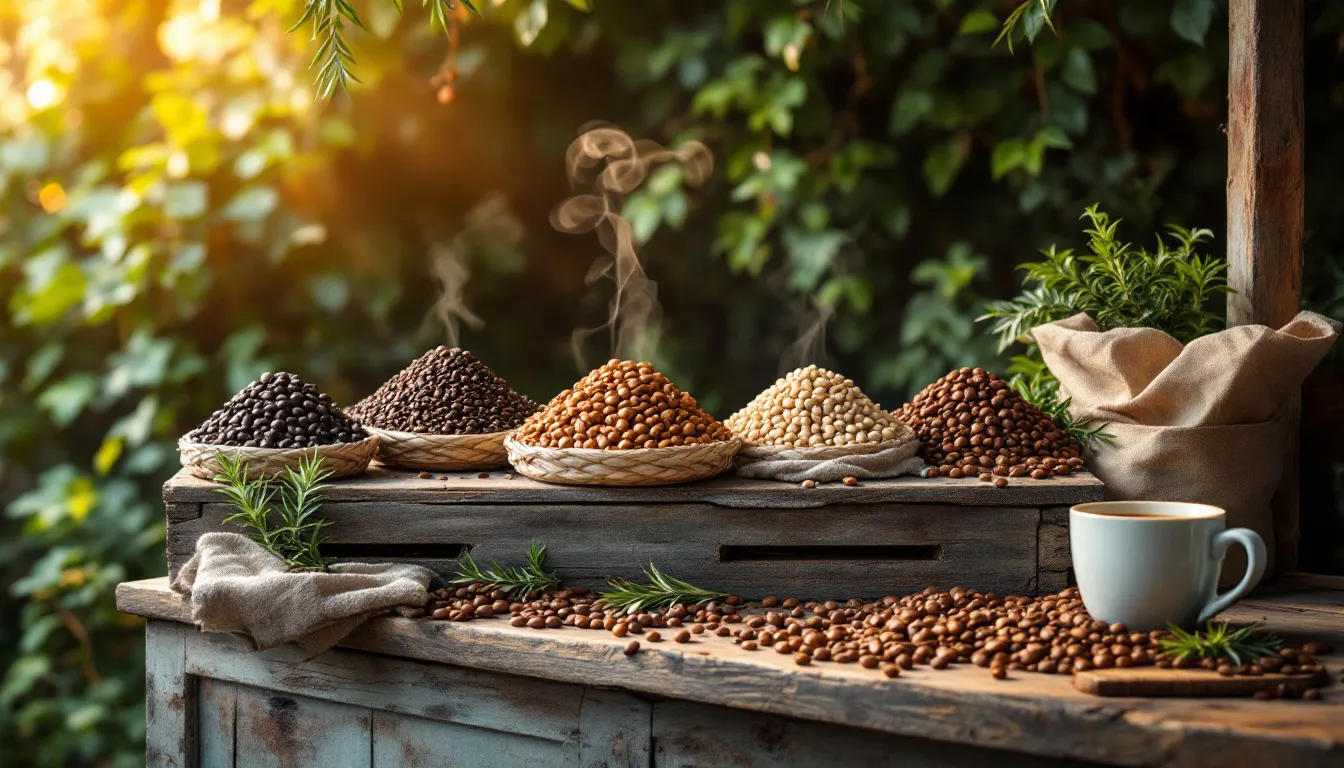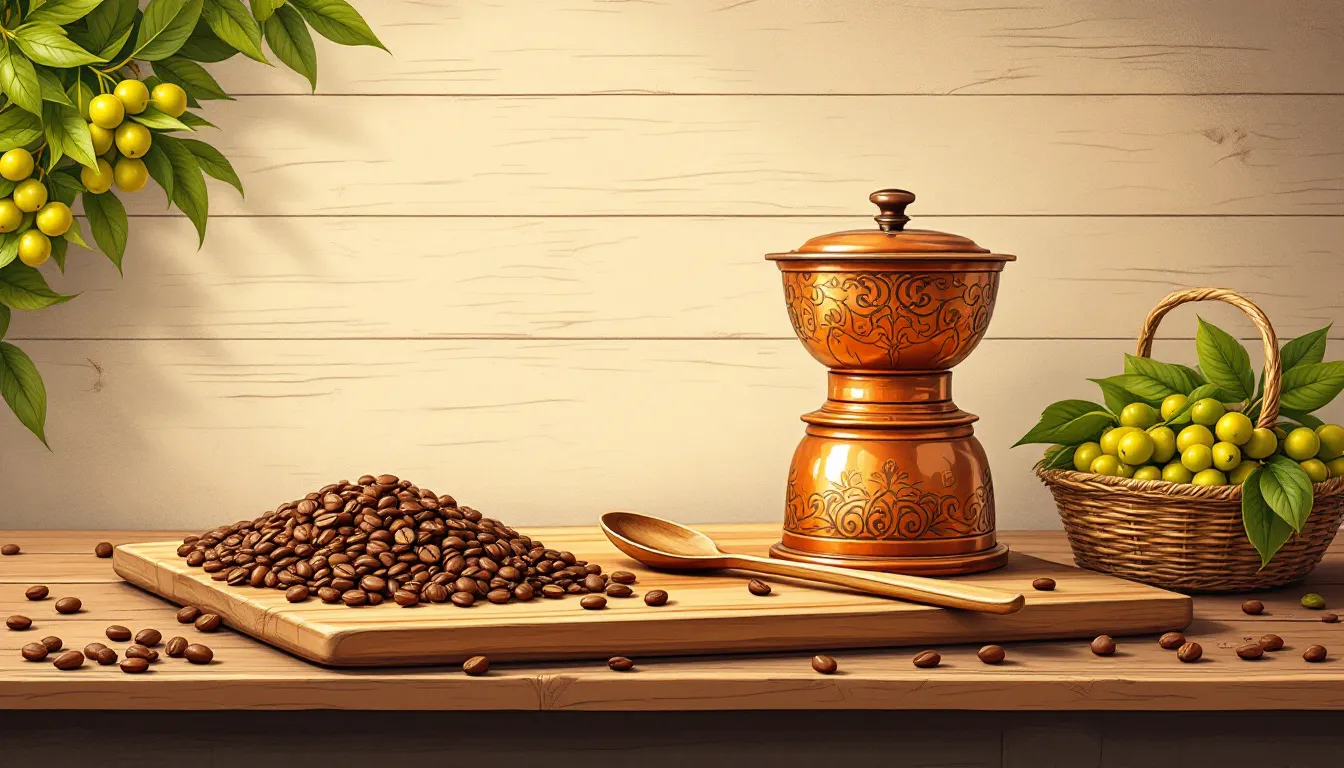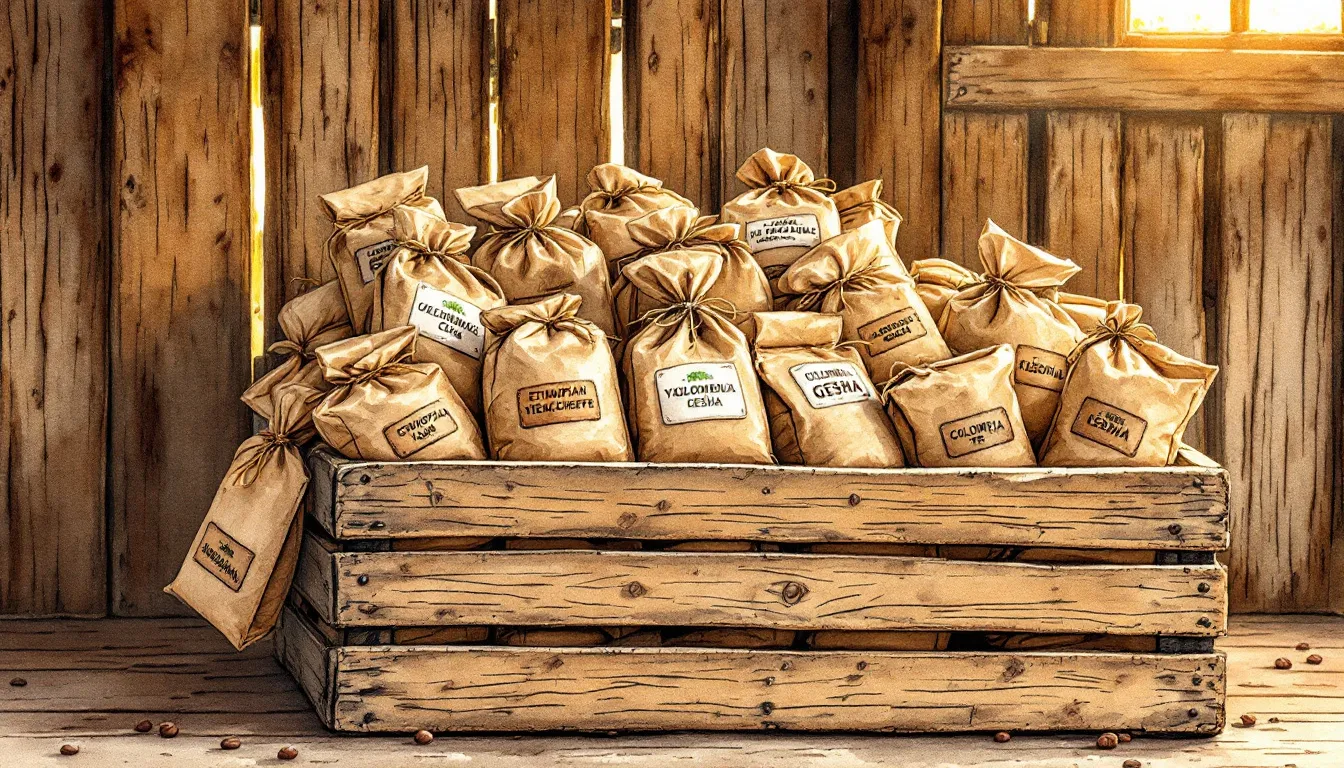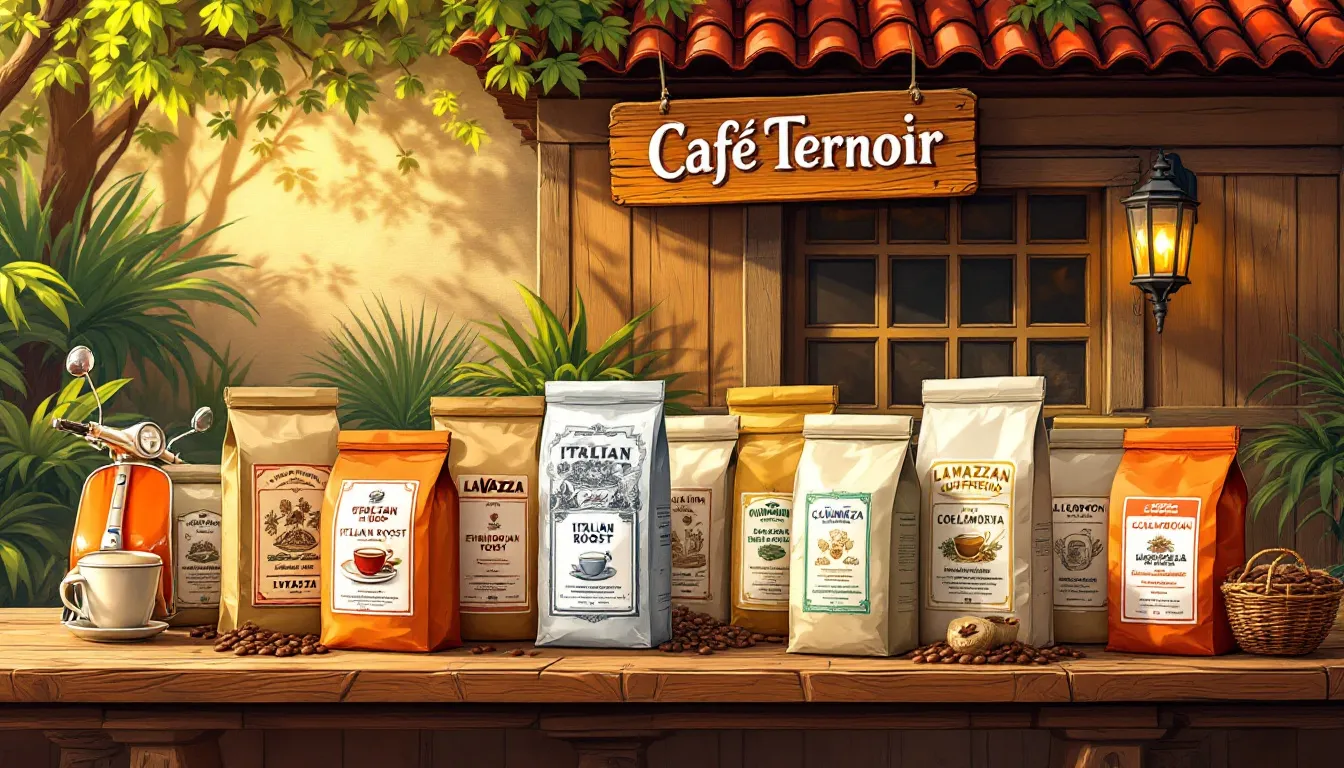Whole Bean Coffee vs Ground Coffee: What You Need to Know
Curious about whole bean coffee and how it compares to ground coffee? Whole bean coffee offers superior freshness, richer flavors, and more control over the brewing process. In this article, Sally Sue's will explore why whole bean coffee is preferred by enthusiasts and how you can get the best out of it.
Whole Bean Coffee: A Fresh Perspective

Whole bean coffee is often hailed as the gold standard for coffee enthusiasts, and for good reason. The primary advantage lies in its ability to retain freshness and flavor far longer than ground coffee. This is because whole coffee beans have less exposure to air and moisture, which are the main culprits behind staleness.
Grinding beans just before brewing unlocks complex flavors and aromas, creating a superior coffee experience that emphasizes freshness and taste in every cup.
Superior Freshness
Whole beans stand out for their superior freshness, maintaining it longer due to less air exposure. Grinding releases oils that enhance flavor and aroma but also evaporate quickly, leading to staleness. Pre-ground coffee can lose its taste and aroma within days, but whole beans, ground just before brewing, offer unmatched freshness.
Aroma is critical to the coffee experience, and whole beans excel in preserving it. Whole beans maintain their aromatic compounds better than ground coffee, ensuring a more fragrant brewing experience, which enhances flavor and enjoyment.
Start by waking up to the aroma of freshly ground coffee beans filling your home kitchen, which signals a promising day, a sensory experience that coffee aficionados cherish.
Grinding and brewing fresh coffee enhances flavor and adds to the ritual, making your morning brew an event to anticipate.
Enhanced Flavor
Grinding whole beans just before brewing releases complex flavors and aromas, resulting in a nuanced and robust cup. This process maximizes oil release, offering a richer profile than pre-ground options. Freshly ground coffee delivers a more aromatic and flavorful experience, making each sip a moment to savor.
The difference in flavor is akin to comparing a freshly baked loaf of bread to one that’s been sitting for days. The bloom, richness, and intricate flavors of freshly ground whole bean coffee are unparalleled.
Each cup becomes an exploration, allowing you to enjoy the full spectrum of coffee flavors.

Grind Size Flexibility
Whole bean coffee allows flexibility in grind size, enhancing the experience by matching various techniques. Different methods, such as espresso or French press, require specific grinding techniques to produce optimal results.
For example, a coarse grind is ideal for a French press, allowing slower extraction for a fuller-bodied coffee, while a fine grind is perfect for espresso, requiring quick extraction for a strong, concentrated shot. This flexibility in grind size customization is a key reason why whole bean coffee is favored by serious brewers.
Whole Bean Coffee and Shelf Life

Freshly roasted whole beans can maintain optimal flavor for up to four weeks if properly stored. Unlike pre-ground coffee, which stales faster, whole bean coffee offers extended freshness. This slower staleness is due to their sealed state against air exposure. This extended freshness is due to reduced oxidation, as the outer layer of whole beans acts as a barrier against air and light.
Proper storage techniques are crucial for maintaining freshness and ensuring your coffee retains its flavor.
Proper Storage Techniques
To ensure maximum freshness, store whole beans in airtight containers at room temperature, away from light and heat. Airtight containers and dark, cool storage help preserve flavor and freshness. Vacuum-sealed containers are particularly effective in keeping air and moisture out, maintaining the quality of your coffee.
Imagine the peace of mind knowing your whole beans are stored in optimal conditions, ready to deliver a fresh, aromatic brew every time. Following these storage tips extends the life of your beans, ensuring consistently high-quality coffee.
Essential Equipment and Grinding Techniques
A quality grinder is crucial for achieving the desired grind size and consistency for different brewing methods. A burr grinder, preferred over a blade grinder, evenly grinds beans, producing a richer flavor.
Grinding techniques significantly impact coffee quality. High-speed grinders minimize heat transfer, preserving flavor integrity. Using a scale for measuring beans enhances grind consistency. For a hands-on approach, a mortar and pestle allows fine control over grind size, enhancing the brewing process.
Mastering different grinding techniques can transform your coffee experience. By experimenting with methods and finding what works best, you can unlock the full potential of your whole beans and enjoy a superior cup every time.
Learning Curve
Transitioning to whole bean coffee involves a learning curve. Beginners may need to experiment with grind size adjustments to find their preferred taste. Finding the right grind size and brewing method is crucial for achieving the best flavor.
Convenience vs Quality: Making Your Choice

Choosing between whole bean and ground coffee often hinges on convenience versus quality. Ground coffee simplifies the brewing process and saves time, while whole bean coffee offers superior taste, freshness, and matter.
For frequent coffee drinkers, grinding whole beans may be worth the effort for superior taste, while casual drinkers may prefer the ease of pre-ground options. Ultimately, it comes down to what you value more in your coffee experience.

Summary
In conclusion, whole bean coffee offers numerous advantages over ground coffee, including superior freshness, enhanced flavor, and better aroma preservation. The ability to customize grind size and select roast levels allows for a more personalized and satisfying coffee experience. While whole bean coffee requires more time and effort, the resulting quality and taste make it a worthwhile endeavor for true coffee enthusiasts. By following proper storage techniques, you can enjoy fresh, and flavorful coffee that elevates your daily brew. Whether you prioritize convenience or quality, understanding these differences will help you make an informed choice that suits your lifestyle and taste preferences.
Frequently Asked Questions
How long can whole bean coffee stay fresh?
Whole bean coffee can stay fresh for several weeks if you store it in an airtight container away from light, heat, and moisture. Just keep it in a cool, dark place for the best flavor!
What equipment do I need to grind whole beans?
We suggest a quality burr grinder for grinding whole beans, as it ensures a consistent grind size and brings out the best flavors in your coffee. Happy brewing!
Why does ground coffee lose its flavor quickly?
Ground coffee loses its flavor quickly because it's more exposed to air, leading to a rapid evaporation of its oils and aromatic compounds.
Is it worth the extra effort to grind whole beans?
Absolutely, grinding whole beans right before you brew enhances the flavor and gives you a much better coffee experience than using pre-ground coffee. It's definitely worth the extra effort!
Can I use the same grind size for all brewing methods?
You can't use the same grind size for all brewing methods. Each method, like coarse for French press or fine for espresso, calls for a specific grind to get the best flavor.